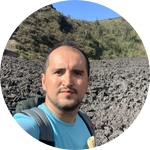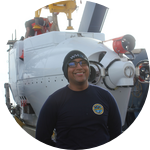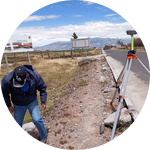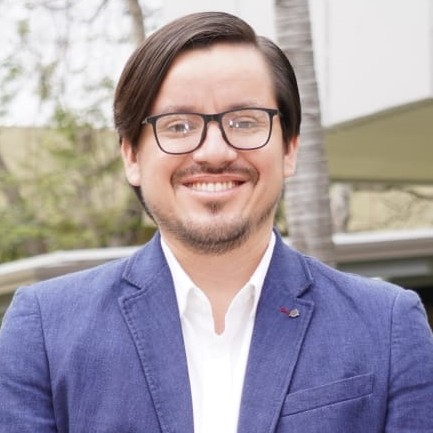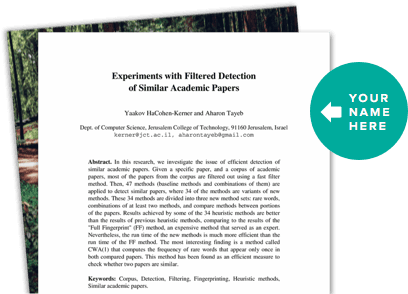About This Project
Climate change and events that modify the global temperature and precipitation dynamics such as “El Niño” affect Marine Protected Areas (MPAs) directly. This project aims to develop the Ecuadorian Geoportal of Ocean-Atmospheric Parameters (GEPOA) with satellite ocean-atmospheric data to monitor and predict changes affecting MPAs. GEPOA will empower MPA managers, government agencies, and researchers to improve monitoring, enforcement, and decision-making for marine conservation.
Ask the Scientists
Join The DiscussionWhat is the context of this research?
Ecuador relies heavily on the health of its MPAs for biodiversity conservation. However, climate change and extreme weather events modify these ecosystems and the communities that depend on them. Despite being a minor contributor to global carbon emissions, Ecuador is strongly affected by climate change. In recent years, prolonged droughts, destructive fires, and marine heat waves highlight the urgent need to develop monitoring tools to predict and mitigate climate impacts. This project addresses these challenges by creating GEPOA, a geoportal that integrates satellite ocean-atmospheric data to monitor and predict changes applying GIS. This tool will be used for management and enforcement of Ecuador’s MPAs, aiding in climate resilience and sustainable resource management.
What is the significance of this project?
GEPOA directly helps Ecuador’s efforts to manage and protect its MPAs by offering an accessible, real-time monitoring of oceanographic and atmospheric conditions. This tool can be used by MPA managers, government agencies, research, and students to:
Enable Early Warning Systems: Predict and mitigate the impacts of extreme events like El Niño or La Niña on marine biodiversity and fisheries.
Support Evidence-Based Decisions: Facilitate research and policy development for sustainable marine management through maps.
Empower Local Communities: Provide data to support community-based initiatives and increase public engagement in conservation.
By integrating satellite data with user-friendly GIS tools, GEPOA promotes both technological innovation and local capacity-building for marine conservation.
What are the goals of the project?
General Goal: To develop the interactive geoportal GEPOA in order to visualize, analyze and disseminate ocean-atmospheric data obtained by remote sensing, contributing to the understanding of environmental phenomena and informed decision making.
Specific Objectives:
Monitor key environmental variables to assess MPA conditions
Automate data acquisition, preprocessing and analysis processes with GIS tools and programming (Python, GEE)
Design a geoportal that is accessible to MPA managers, researchers, and the public, with features for data visualization
Promote the use of scientific data in the sustainable management of marine ecosystems and adaptation to phenomena such as El Niño or La Niña
Train those involved in the use of GIS and remote sensing technologies.
Budget
The project budget ensures that each key stage is supported with adequate resources. The high-performance hardware allows to process large volume of satellite data and perform complex analysis. To save some budget, we will use free software to ensure access to advanced tools for spatial analysis and geoportal construction. But the technical training in GIS and remote sensing around the variables to show in the geoportal are necessary to empower the team to handle tools and data efficiently. As with the software, the satellite data is also free, to optimizes budget by eliminating acquisition costs, while the integration of secure storage improves the reliability of results. The allocation for web infrastructure ensures the publication of an interactive and accessible geoportal. This comprehensive approach transforms the budget into a strategic tool for meeting scientific and educational objectives.
Endorsed by
 Project Timeline
Project Timeline
The project will be developed in six stages over 12 months. It begins with planning and design, where objectives and workflows are defined. Then, satellite data is acquired and processed, optimizing its analysis through GIS tools. The development of the geoportal includes data integration and interactive functionalities. Subsequently, results are validated and training in its use is provided. Finally, the geoportal is published online with adjustments based on feedback.
Dec 30, 2024
Project Launched
Feb 15, 2025
Planning and design: Define objectives and key variables. Design workflow.
Mar 31, 2025
Data acquisition: Identify satellite and local data sources. Download initial data.
May 31, 2025
Data processing: Preprocess data (corrections, formats). Create analysis algorithm.
Sep 30, 2025
Geoportal development: Program the portal interface. Integrate data and interactive tools
Meet the Team
Team Bio
We are a group of researchers working with remote sensing and geographic information systems motivated by knowledge generation, the use of open access tools and information, teaching young people and at the same time concerned about the current problems facing the planet due to climate change.
Divar Castro Rodas
Actual doctoral candidate at ESPOL, working in GIS and satellite information at CIPAT, part-time professor and seven year of experience working with remote sensing, data applied to oceanographic and atmosphere information. Also participate in MPA projects years ago in ESPOL related to harmful algae bloom in Ecuador.
David Freire
I´m a geographical and environmental engineer (2015). In this area I have worked in cadastre. In 2019 I obtained a master's degree in territorial planning, becoming more involved in the management of satellite images (remote sensing). Later, in 2021 I obtained a master's degree in Risk Management which helped me strengthen my knowledge in GIS. By 2023 I obtained a technology in legal assistance for general knowledge of municipal regulations. Currently, I am pursuing a doctorate in Engineering with a mention in georesources.
Andrés Velástegui
Andrés Velastegui-Montoya (Member, ISPRS) is a full Professor at the Faculty of Engineering in Earth Sciences (FICT) at ESPOL Polytechnic University. He received his PhD in Environmental Sciences (2018) from the Federal University of Pará (Brazil). In addition, he obtained a Specialization in Geomatic Applied to the Environment (2021) from the Mario Gulich Institute for Higher Space Studies (Argentina) and a Specialization in Georeferencing, Geoprocessing and Remote Sensing (2018) from Estacio de Sa University (Brazil). He received his Master's in Environmental Engineering (2012) from the University of Barcelona (Spain).
Andrés is fully dedicated to the generation of knowledge and scientific divulgation. He collaborates as co-director of the research group “Hydroenvironmental Studies and Modeling” from the Federal University of Pará. He has participated as director of seven national and regional research projects, three of which are in the Amazon region. He is the author and co-author of more than 45 scientific articles in the field of SIG, Remote Sensing and Environmental Sciences. His Current Research Interests include Geographic Information Systems, Remote Sensing, Land Use Land Cover Changes, Urban Planning and Crowdsourcing Data.
Lab Notes
Nothing posted yet.
Additional Information
Key environmental variables are sea surface temperature, sea level, atmospheric pressure, precipitation and wind speed
GEPOA is the spanish acronym for Ecuadorian Geoportal of Ocean-Atmospheric Parameters
We want to create a viewer similar to : https://odes-chile.org/app/uni...
But focused on oceanographic information in protected areas.
Project Backers
- 4Backers
- 46%Funded
- $3,650Total Donations
- $912.50Average Donation
